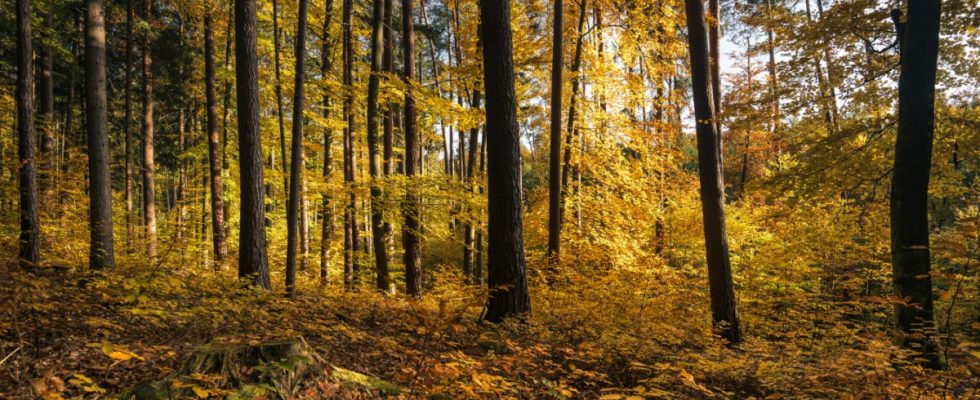“Why a tour explicitly for women?” asks Markus Stimmelmayer from the Office for Food, Agriculture and Forestry Traunstein (AELF) at the beginning of this afternoon. The status quo alone is reason enough for him: According to a calculation from the third federal forest inventory (as of 2019), around 40 percent of the 700,000 forest owners in Bavaria are female. In fact, forest ownership is no longer a male domain. Property is divided equally among heirs and heiresses. As a result, the number of women forest owners will continue to increase in the future, explains Stimmelmayer. He and his colleagues therefore met around 40 women from young to old in a parking lot near Truchtlaching. Some women have only recently become forest owners, others are more experienced. Together they want to look at a forest and learn more about forests in climate change, planting and hunting. “My goal was to create an open space for questions and discussion,” says Stimmelmayer after the event.
And he seems to have succeeded: As the group walks through the forest, the women immediately start talking to each other: Where are their forest areas, which forester is responsible for it, which trees do they plant, etc. For many, these conversations in between are one of the reasons why they came here today. Although the forestry world is no longer a male domain, it is often men who take over management, says one participant. In this male-dominated circle, many women are insecure. Petra Bathelt, forester in the Altenmarkt district, who supports Stimmelmayer this afternoon, also observes this. “The women don’t dare do it,” she says. They are often alone or in the minority at events.
Bathelt has been working in the industry for around 20 years and sees change as being much slower than in the police, for example. One reason is certainly that working in the forest is difficult. Another point Bathelt makes is that the industry is very traditional. Her experience is that the woman runs the house and the man takes care of the hard agricultural and forestry work. “Something is already happening!” Bathelt cites the chainsaw as an example. When she started, there were no women’s sizes. That has now changed.
The shared exchange during the forest tour does not stop even when Stimmelmayer stops and gives the first input on the topic of “forests in climate change”. You can tell that the women feel connected to their forest areas and have a great thirst for knowledge. They are interested in how others do it and ask for tips for their own forest areas. Many of them have inherited their forest and are continuing the family tradition of forest management. This is also the case for Michaela Sommer: three years ago she inherited a piece of forest from her uncle. “A lot of people say, wow, you’re doing that as a woman,” she says. “Of course, it’s hard work, but I have strength.” She does what she can do. And what she can’t do or what is too dangerous for her, she leaves in other hands.
Markus Stimmelmayer wants to create an open space for women on his forest tours in which they can ask questions and discuss.
(Photo: Lina Krauss)
It was just about how to properly plant a tree when one of the participants asked the experts whether women were more interested in ecological forest management than men. Bathelt answers: “My experience is that women are more open and sensitive.” And here too the word tradition comes up again: men would often still do the farming the way their father and grandfather did. Women are more creative and are more likely to try new things. “When I talk to women, I have to do less convincing,” says Bathelt. Stimmelmayer also has the impression that women focus more on nature conservation and the entire ecosystem and that the economic benefits are of secondary importance.
The third point on the agenda this day is hunting. Stimmelmayer and Bathelt explain what rights forest owners have when it comes to protecting their forest from browsing by game. Only if they know what they can demand can they assert themselves in front of their respective hunters. It’s not always easy, especially as a woman, says Bathelt. She experienced that herself. But she encourages the women: “Don’t be intimidated!” At this moment it refers to the contact with hunters, but subliminally you think you can hear that she cares about the entire industry.
The Bavarian State Institute for Forestry and Forestry has recognized the increasing importance of women in the forest. That’s why in 2020 she took part in the interregional European project Fem4Forest, which aims to increase female participation and visibility of women in forest management. Since then, more and more events have taken place specifically for women, such as today a space for exchange between like-minded people.

